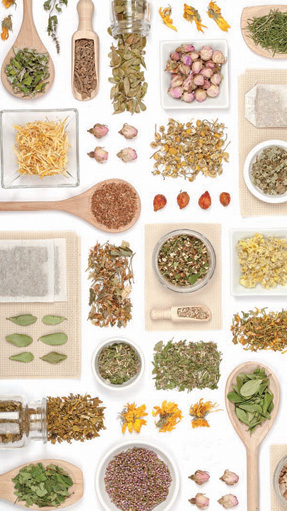
By Jonathan Evans
Herbal Information Specialist for the Herbarium
Happy New Year to you all. Twenty-twenty one holds the promise of better times (Hell, it couldn’t get much worse).
How to store, use loose herbs
I have been writing for Prime magazine for 15-plus years, and recently realized I have never written about how to properly handle, store and use loose herbs. It is so ingrained in me, talking about it every day, explaining to so many about the hows and whys of herb use – it just never came up.
This past year saw such an increase in people using loose herbs, I felt it was time to tell all of you the proper way to use and handle these gifts of nature.
Proper use of loose herbs is actually quite simple and straightforward. Here are six basic tips:
Following these tips should keep your herbs and spices pungent, colorful and flavorful.
Infusions and decoctions
The word “tea“ has become generic, sort of like gelatin is referred to as “Jell-O” whether it is that brand or any other. When we speak of making “tea,” we are actually preparing one of two types of things – an infusion or a decoction – depending on what form of herb you are using.
These types of preparations are different than when you make a cup of your Salada tea (which is Camellia sinensis)
An infusion is made using leaves and flowers. Do Not boil the herbs. Do Not use an aluminum pot, tea ball or strainer. The essential oils and other constituents in the preparation can leach aluminum into your infusion – the same way you do not make spaghetti sauce in an aluminum pot because the acid in tomatoes will leach aluminum into your sauce.
To prepare your infusion, first bring water to a boil and remove it from the heat. Add a rounded teaspoon of dried herb – or a tablespoon of fresh herb – per cup. Cover and let stand 10 to12 minutes, unless otherwise directed.
Covering the infusion helps keep in many of the plant’s constituents. Remember, these are medicinal plants for the most part and you want to get the maximum benefit from them.
Roots, bark, seeds or berries are used in a decoction. Add your ingredient to cold water, bring the water temperature to just a boil, then reduce the heat to a gentle simmer. Cover the pot, and let the decoction simmer for 10 minutes. Remove it from heat and let stand for 10 more minutes, then strain.
If you are making more than one cup, the remainder should be refrigerated. Your infusion or decoction should be used in 24-48 hours, especially if the ingredients are organic.
I hope these instructions will help you get the most from your herbs.
Herbs, oils and stress
Even though many schools are using remote learning, the stress of this situation and the increased distractions of being home and working via computer are still there, more now than ever. If you or your children are experiencing a lack of focus and concentration, there are some natural remedies to help you get back on track.
Bacopa (Bacopa monnieri) is an Ayurvedic herb used for focus and calming.
Other herbs, such as Ginkgo biloba, Gotu kola, Eleuthero, and Rhodiola rosea can help with more alertness.
Essential oils such as peppermint, or any of the citrus oils are also helpful. We have a blend called “Brain Power,” created by Clinical Aromatherapist Kathleen Duffy, which has been used successfully for many years. Your sense of smell is the first sense you acquire and the last you lose; this blend helps with the retention of facts when inhaled while you are inputting the information (also known as studying).
The information is then strongly attached to the scent. When exam time comes and you can’t seem to remember the information, sniffing the oil helps retrieve it.
— Jonathan
Send questions on botanical remedies to: Natures Rx: Jonathan Evans at herbarium258@gmail.com, or by regular mail to: The Herbarium, 264 Exchange Street, Chicopee, MA 01013. If requesting additional info, include a self-addressed stamped envelope.